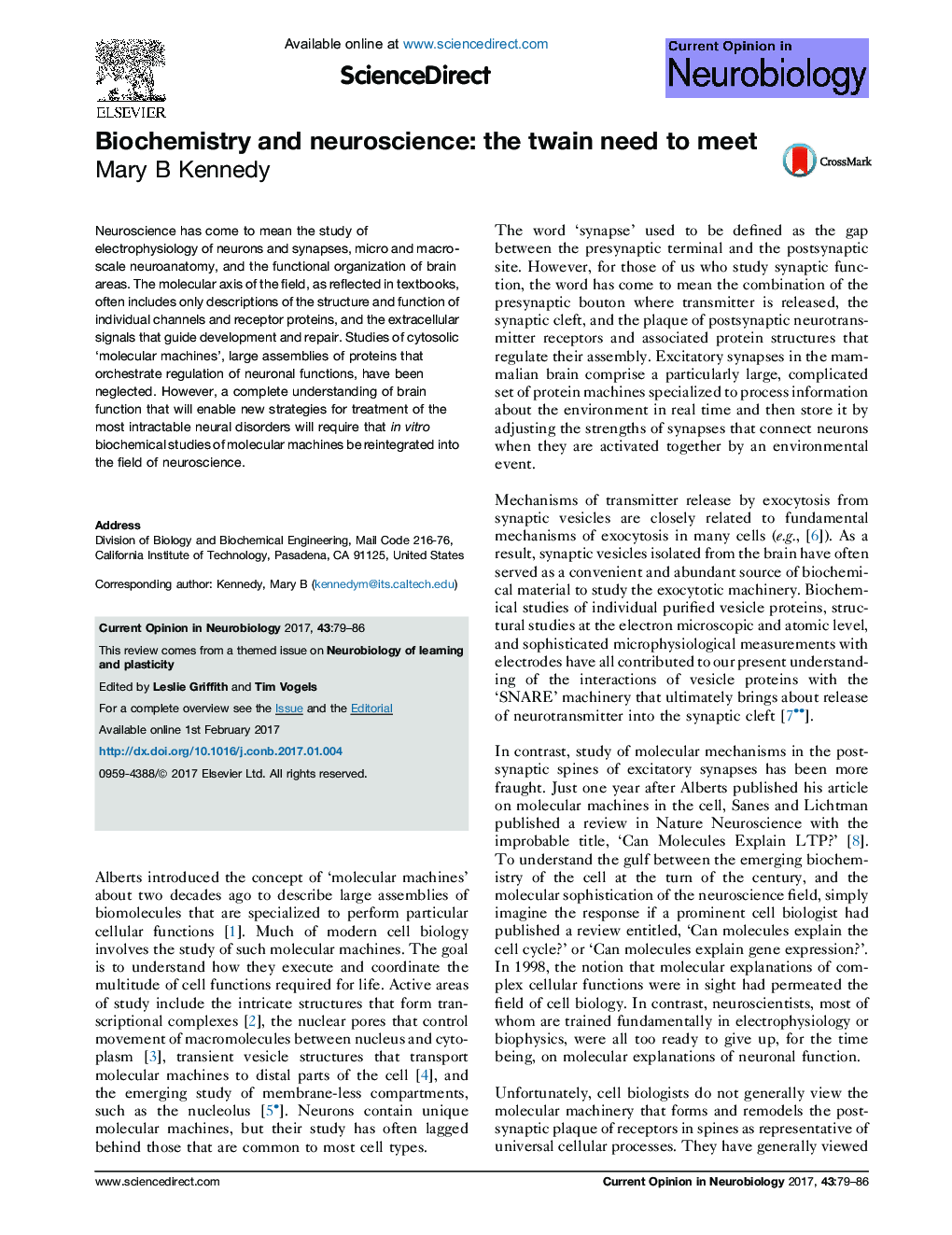| Article ID | Journal | Published Year | Pages | File Type |
|---|---|---|---|---|
| 6266011 | Current Opinion in Neurobiology | 2017 | 8 Pages |
â¢All cells contain many 'molecular machines' that carry out complex cellular functions.â¢Neuroscience has lagged behind in the study of specialized neuronal molecular machines.â¢Insight into neuronal molecular mechanisms depends on deep biochemical knowledge.â¢That insight will require renewed interest in studies of specialized neuronal proteins in vitro.â¢Understanding of intractable mental disorders will also require in vitro biochemical studies.
Neuroscience has come to mean the study of electrophysiology of neurons and synapses, micro and macro-scale neuroanatomy, and the functional organization of brain areas. The molecular axis of the field, as reflected in textbooks, often includes only descriptions of the structure and function of individual channels and receptor proteins, and the extracellular signals that guide development and repair. Studies of cytosolic 'molecular machines', large assemblies of proteins that orchestrate regulation of neuronal functions, have been neglected. However, a complete understanding of brain function that will enable new strategies for treatment of the most intractable neural disorders will require that in vitro biochemical studies of molecular machines be reintegrated into the field of neuroscience.
